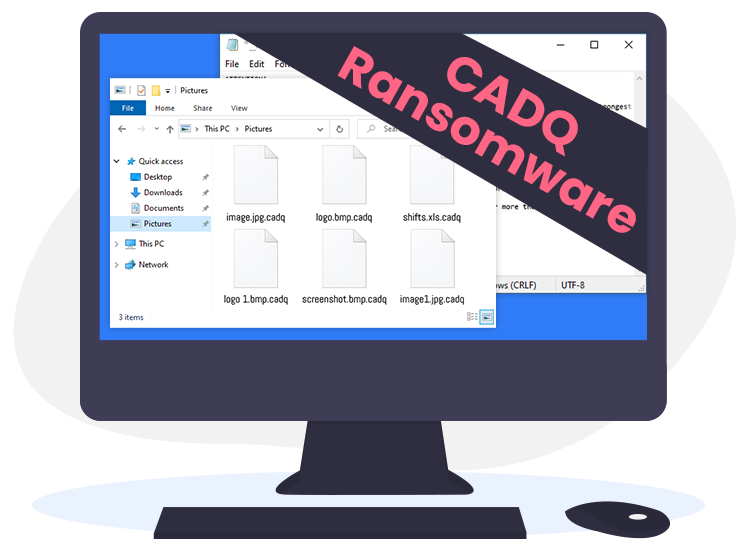
CADQ ransomware is a newly found data-encrypting malware that falls under the family of ransom demanding malware. Like most computer infections of this type, it infiltrates the security vulnerable system and holds victims’ data hostage until they pay the ransom money.
If you suspect that your computer has been infected with such types of infections, it is suggested to get rid of them before they cause any harm to your system, especially to your valuable data. Keep on reading to know how to remove CADQ ransomware from your computer without going through several tedious and time-consuming manual instructions.
What is CADQ Ransomware?
Belonging to the Djvu ransomware family, CADQ is a piece of malicious software created with the sole purpose of extorting hundreds or even thousands of dollars from innocent users. It operates by encrypting all types of files (images, archives, audios, videos, documents, etc.) found on the victim’s computer with the “.cadq” extension.
For instance, a file originally named “1.mp3”, once encrypted by CADQ, will be renamed into “1.mp3.cadq”. Once this encryption process is completed, CADQ creates a ransom note named “_readme.txt” and drops it in all folders that contain encrypted files.
The text presented in the ransom note informs victims about the encryption and instructs them to establish contact with the CADQ ransomware creators via email in order to get their files back.
CADQ Ransomware: Distribution Techniques
Here are some of the common techniques used by cybercriminals to deliver computer infections like CADQ ransomware to the targeted systems.
- Malicious email spams
- Exploit Kits
- Unofficial and dubious download channels
- Pornographic or adult content related websites
- Peer-to-Peer file-sharing networks
- Flaws of outdated programs, browsers, and operating systems
- Intrusive adverts, illegal activation tools, etc.
How to Remove CADQ Ransomware from PC?
In order to completely remove or prevent ransomware-type infections, we recommend running a scan with a trusted and reliable antivirus/ anti-malware software on your system.
Along with this, we recommend you follow the below-listed internet security tips to protect yourself from all sorts of cyber-attacks.
- Do not open an email attachment from an unknown or suspicious sender.
- Keep your Windows operating system and installed applications updated at all times.
- Avoid connecting to free public Wi-Fi networks.
- Take regular backup of your important files/ folders to prevent data loss.
- Don’t install software from unofficial or dubious webpages.

